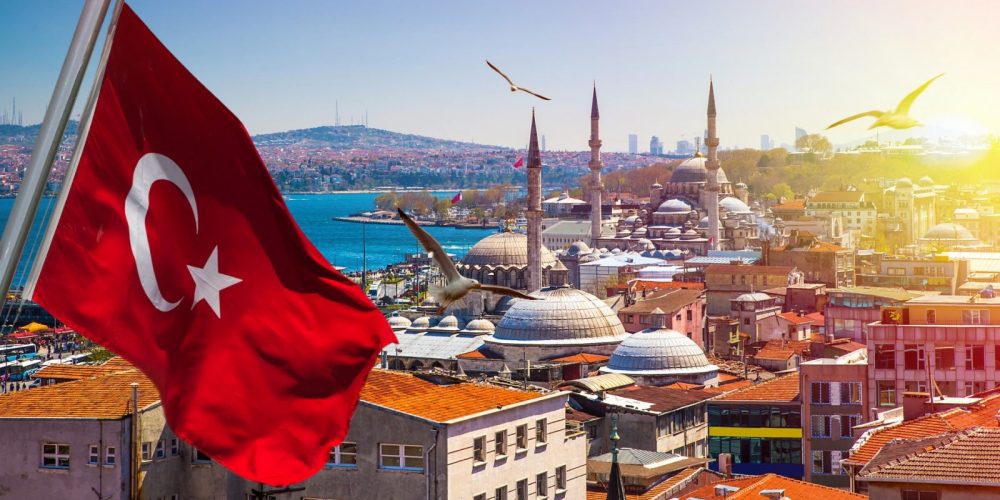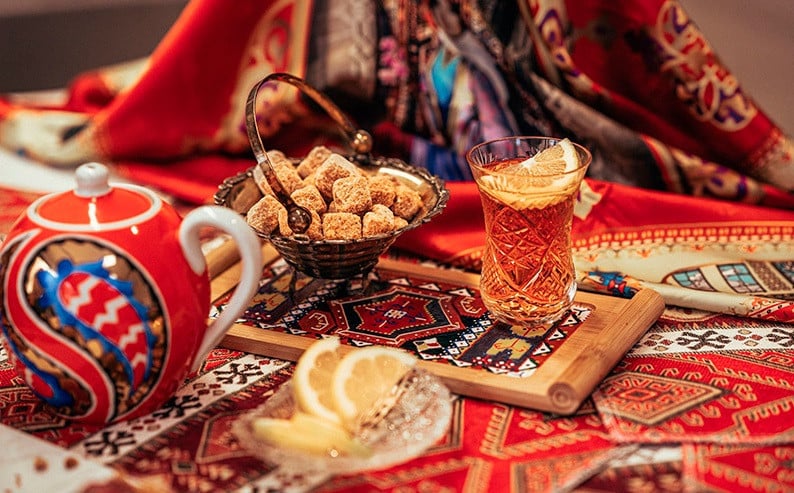Moving to Turkey can be an exciting and rewarding experience, offering a rich blend of history, culture, and modernity.
As a country that bridges Europe and Asia, Turkey has a unique cultural landscape deeply rooted in traditions while being influenced by Western ideas.
For foreigners moving to Turkey, understanding the local customs, social norms, and cultural etiquette is essential for a smooth transition and successful integration into Turkish society.
This article provides over 2,000 words of in-depth cultural advice for foreigners, covering everything from language and social norms to business dealings and etiquette in religious sites.
Understanding Turkish Culture

A Blend of East and West
Turkey's cultural heritage is a fusion of Eastern and Western influences, reflecting its historical significance as a crossroads between continents.
The country is predominantly Muslim, with Islam playing a significant role in shaping social norms and customs. However, Turkey is also a secular republic with a constitution that separates religion from state affairs. This unique blend of tradition and modernity makes Turkish culture diverse and dynamic.
Importance of Family and Community
Family and community are central to Turkish culture. Many Turks strongly emphasize family ties and maintaining close relationships with extended family members.
Social gatherings often revolve around family, and it’s common for multiple generations to live together or nearby. For foreigners moving to Turkey, understanding the importance of family in Turkish society can help build strong relationships with locals.
Language Tips for Foreigners
Learning Basic Turkish Phrases
While English is widely spoken in major cities and tourist areas, learning some essential Turkish words and phrases can go a long way in helping you integrate into Turkish society. Turks appreciate foreigners who try to speak their language, even just a few simple words.
Merhaba (Hello) – A polite way to greet people.
Teşekkür ederim (Thank you) – A common phrase to express gratitude.
Evet/Hayır (Yes/No) – Basic words for agreement or disagreement.
Lütfen (Please) – A polite way to make a request.
Günaydın (Good morning) – A greeting used in the morning.
İyi akşamlar (Good evening) – A greeting used in the evening.
Understanding Turkish Pronunciation
Turkish pronunciation is relatively straightforward, with each letter having a consistent sound. For example, the letter "c" is pronounced like the "j" in "jam," and the letter "ş" is pronounced like the "sh" in "shop." Familiarizing yourself with Turkish pronunciation can help you communicate more effectively and avoid misunderstandings.
Using the Right-Hand
In Turkish culture, the right hand is considered clean and polite, while the left is often associated with unclean tasks. When offering or receiving items, such as money, food, or gifts, it is customary to use your right or both hands. This is especially important when interacting with older individuals or in formal settings.
Social Norms and Etiquette in Turkey
Greeting People in Turkey
Greetings are essential to Turkish culture; how you greet someone can set the tone for your interaction. A handshake is the standard greeting in most situations, but using the right hand is essential. A firm but not overly strong handshake is expected when meeting someone for the first time.
Islamic Greeting: In more conservative or religious settings, you might encounter the Islamic greeting, "Selamün aleyküm," which means "Peace be upon you." The appropriate response is "Aleyküm selam," meaning "And upon you, peace."
Greet People with Respect: When greeting older people or those in positions of authority, it is respectful to add "Bey" (Mr.) or "Hanım" (Mrs./Ms.) after their first name. For example, "Ahmet Bey" or "Fatma Hanım."
Personal Space and Social Interaction
Turkish people are generally warm and hospitable and value close personal relationships. However, personal space in Turkey may be more intimate than what North Americans or Europeans are accustomed to. It’s common for people to stand closer together when speaking and to engage in physical contact, such as a pat on the back or a kiss on the cheek, especially among friends and family.
Maintain Eye Contact: In Turkey, maintaining eye contact shows sincerity and trust. However, prolonged eye contact with someone of the opposite gender may be considered flirtatious, so it’s essential to be aware of the context.
Respect for Elders: Respect for elders is deeply ingrained in Turkish culture. Standing up, greeting them with respect, and allowing them to speak first is polite when meeting older individuals.
Dress Code and Modesty
Turkey is a predominantly Muslim country, and while dress codes are generally relaxed in significant cities, it’s essential to dress modestly, especially in rural areas or when visiting religious sites.
Dress Modestly: Women should avoid revealing clothing such as tank tops, shorts, or low-cut dresses, particularly in conservative areas. Men should also avoid wearing shorts and sleeveless shirts in formal or religious settings.
Visiting Religious Sites: Dressing modestly when visiting religious sites like mosques is essential. Women should cover their heads with a scarf, and both men and women should wear clothing that covers their arms and legs. It’s also customary to remove your shoes before entering a mosque.
Etiquette in a Turkish Home

Turkish hospitality is legendary, and if you are invited into someone’s home, you will likely be received warmly. However, there are specific etiquette tips to remember when visiting a Turkish home.
Remove Your Shoes: It is customary to remove your shoes before entering someone’s home. You may be offered slippers to wear inside.
Bring a Gift: When visiting someone’s home, it’s polite to bring a small gift, such as flowers, sweets, or Turkish coffee. Lavish gifts may be considered excessive, so a simple token of appreciation is appropriate.
Offer to Help: While the host may politely decline, offering to help with meal preparation or clearing the table is a kind gesture that is often appreciated.
Dining Etiquette
Food is central to Turkish culture, and meals are often a social event shared with family and friends. Understanding Turkish dining etiquette can enhance your experience and help you build stronger relationships with locals.
Turkish Tea and Coffee: Turkish tea (çay) and coffee (kahve) are integral to the culture. You will likely be offered tea or coffee when visiting someone’s home or during business meetings. Accepting the offer is polite, as refusing may be considered rude.
Sharing Meals: Meals in Turkey are often communal, with dishes placed in the center of the table for everyone to share. It’s customary to wait for the eldest person to eat before you begin.
Polite Way to Decline: If you are offered more food and are full, it’s polite to say, "No, thank you" (Hayır, teşekkür ederim). However, it’s common for the host to insist that a gentle refusal may be necessary.
Building Relationships in Turkish Society
Importance of Relationship Building
Building personal relationships is crucial in Turkish society, whether in social or business contexts. Turks place a high value on trust and loyalty and often prefer to do business with people they know and trust.
Business Meetings: The relationship-building process may precede immediate negotiations in business dealings. It’s common for business meetings to begin with small talk and discussions about family, sports, or other non-business topics before getting down to business.
Exchange of Business Cards: When exchanging business cards, it’s polite to offer your card with both hands and take a moment to read the card you receive. This shows respect for the person you are meeting.
Gender Roles and Interactions
Gender roles in Turkey can vary depending on the region and the level of conservatism. In more conservative areas, interactions between men and women may be more reserved, while in major cities, gender roles may be more relaxed.
Interaction with the Opposite Gender: In professional settings, interactions between men and women are generally formal and respectful. However, in social situations, physical contact between men and women who are not related may be avoided, especially in conservative areas.
Escort Women: It’s common for men to escort women in social situations, such as walking them home or helping them with their belongings. This is seen as a gesture of respect and protection.
Gift-Giving Etiquette
Gift-giving is common in Turkish culture, whether in social or business settings. However, certain cultural norms must be considered when giving and receiving gifts.
Avoid Lavish Gifts: While gifts are appreciated, lavish gifts may be seen as inappropriate or could create a sense of obligation. Small, thoughtful gifts are generally preferred.
Wrapping and Presentation: Gifts should be wrapped nicely and presented with both hands. When receiving a gift, it’s polite to express your appreciation and open the gift in the giver's presence.
Visiting Religious Sites

Turkey has many beautiful mosques and religious sites, such as the Blue Mosque in Istanbul. Visiting these sites can be a fantastic experience, but observing the proper etiquette is essential.
Dress Modestly: As mentioned earlier, modest dress is required when visiting mosques and religious sites. Women and men should cover their heads and wear clothing covering their arms and legs.
Remove Shoes: Shoes must be removed before entering a mosque. Most mosques provide a place to store shoes, or you can carry them in a bag.
Respectful Behavior: It’s important to remain quiet and respectful inside the mosque. Avoid taking photos of people praying, and refrain from walking in front of someone.
Navigating Daily Life in Turkey
Transportation Etiquette
Turkey has a well-developed public transportation system, including buses, trams, metros, and ferries. Understanding transportation etiquette can help you navigate daily life in Turkish cities.
Using Public Transportation: Public transportation is widely used in Turkey, especially in major cities. It’s essential to offer your seat to older adults, pregnant women, and those with disabilities. Standing up to let others sit is a sign of respect.
Taxi Etiquette: When taking a taxi, it’s common to greet the driver with "Merhaba" (Hello) and to engage in small talk. Most taxi drivers appreciate a friendly demeanor, and it’s customary to round up the fare as a tip.
Turkish Baths (Hamams) and Spa Etiquette
Visiting a Turkish bath, or hammam, is a traditional and relaxing experience many foreigners enjoy. However, certain etiquette tips must be followed.
Dress Code: In a hamam, modesty is essential. Men wear a "peştemal" (a traditional towel) around their waist, while women wear a similar covering. Bathing suits are also acceptable in some modern humans.
Hamam Etiquette: When entering a hamam, washing yourself before entering the communal bath area is customary. Respect the personal space of others and follow the instructions of the attendants.
Health and Hygiene
Health and hygiene practices in Turkey may differ slightly from what you are used to, particularly in public restrooms.
Toilet Paper and Hygiene: In many Turkish restrooms, you may find a bidet or a water spray hose for cleaning rather than toilet paper. Carrying a small pack of tissues with you is a good idea, especially when traveling in rural areas.
Eating Etiquette: In Turkish culture, food is often eaten with the right hand, as the left hand is considered unclean. This is especially important in more traditional settings or when eating with locals.
Integrating into Turkish Society
Becoming Part of the Community
Integrating into Turkish society can be a fulfilling experience, but it requires an understanding of local customs and a willingness to adapt.
Attend Social Events: Turkish people are known for their hospitality, and you may be invited to social events, such as weddings, festivals, or family gatherings. Attending these events is a great way to integrate into the community and build lasting relationships.
Learn About Turkish Holidays: Familiarize yourself with Turkish holidays, such as Republic Day and Victory Day, and religious holidays, such as Eid al-Fitr and Eid al-Adha. Participating in or acknowledging these celebrations shows respect for Turkish culture.
Respecting Turkish Traditions and Values
Turkish traditions and values are deeply ingrained in the culture, and respecting them is crucial for successful integration.
Show Respect for Mustafa Kemal Atatürk: Mustafa Kemal Atatürk, the founder of modern Turkey, is a revered figure in Turkish society. Respecting his legacy is important, and criticizing Atatürk or the Turkish flag is considered highly offensive.
Understanding Religious Practices: While Turkey is a secular country, Islam plays a significant role in daily life. Be respectful of religious practices, such as prayer times, fasting during Ramadan, and abstaining from alcohol in conservative areas.
Making Friends and Building Connections
Building connections in Turkey can enrich your experience and help you feel more at home.
Be Open and Friendly: Turks are generally warm and welcoming, and showing genuine interest in their culture and traditions can help you make friends. It’s common to exchange phone numbers and stay in touch after meeting someone new.
Respect Personal Boundaries: While Turks are friendly, it’s important to respect personal boundaries, especially regarding interactions with the opposite gender. Take cues from locals and adjust your behavior accordingly.
Navigating Challenges as a Foreign Visitor
As a foreign visitor in Turkey, you may encounter challenges, but understanding local customs and being adaptable can help you navigate them successfully.
Handling Unwanted Attention: Foreign women, in particular, may receive unwanted attention in certain areas. Dressing modestly and avoiding eye contact with strangers can help minimize this. If you feel uncomfortable, it’s okay to seek help from locals or move to a safer location.
Understanding Cultural Differences: Cultural norms in Turkey may differ from what you are used to, especially regarding social interactions, gender roles, and public behavior. Being open-minded and adaptable will help you navigate these differences.

Conclusion: Embracing the Turkish Experience
Moving to Turkey offers a fantastic experience filled with rich history, diverse culture, and warm hospitality. By understanding and respecting Turkish customs, social norms, and etiquette, you can integrate more easily into Turkish society and build meaningful relationships with locals.
Whether you’re visiting Turkey for a short stay or planning to live there long-term, embracing the local culture will enhance your experience and help you make the most of your time in this beautiful country. With the proper cultural knowledge and an open heart, Turkey can become a place to live and call home.
Read Also:
Top 10 Places in Istanbul: Living Near History and Culture
Historic Charm and Modern Appeal: Istanbul's Diverse Real Estate Districts


